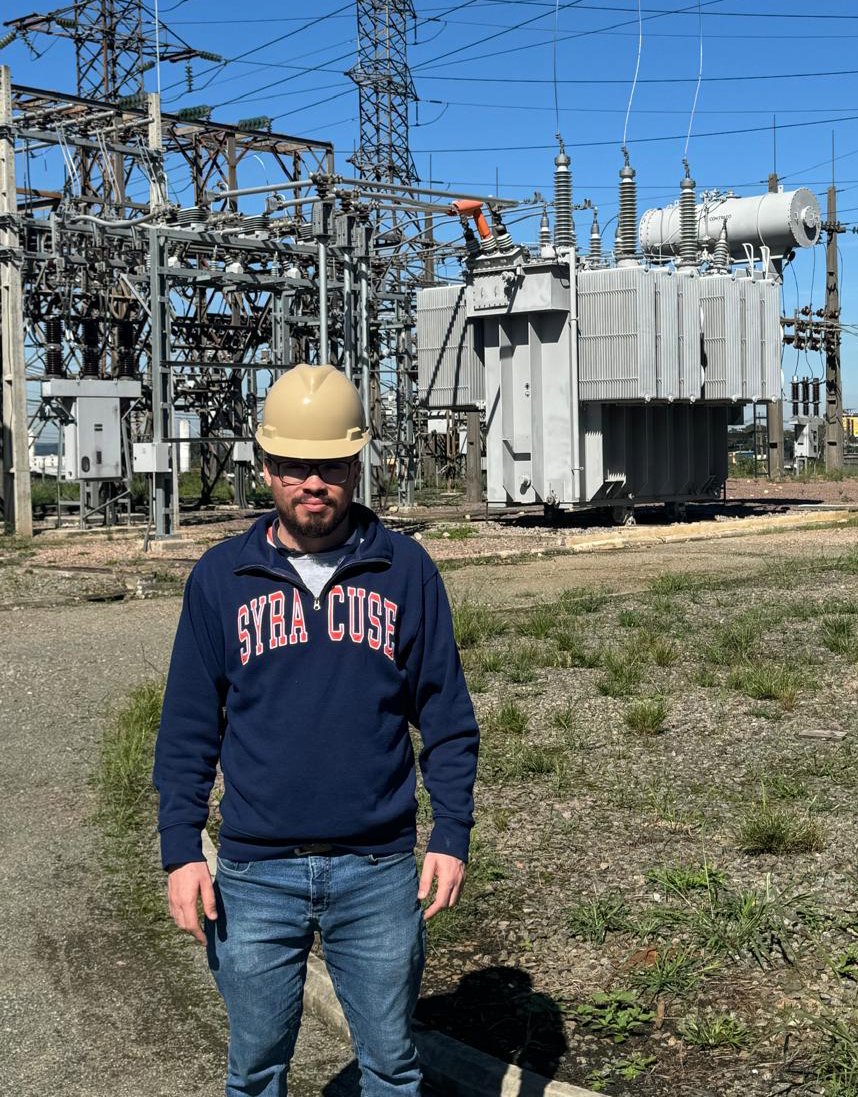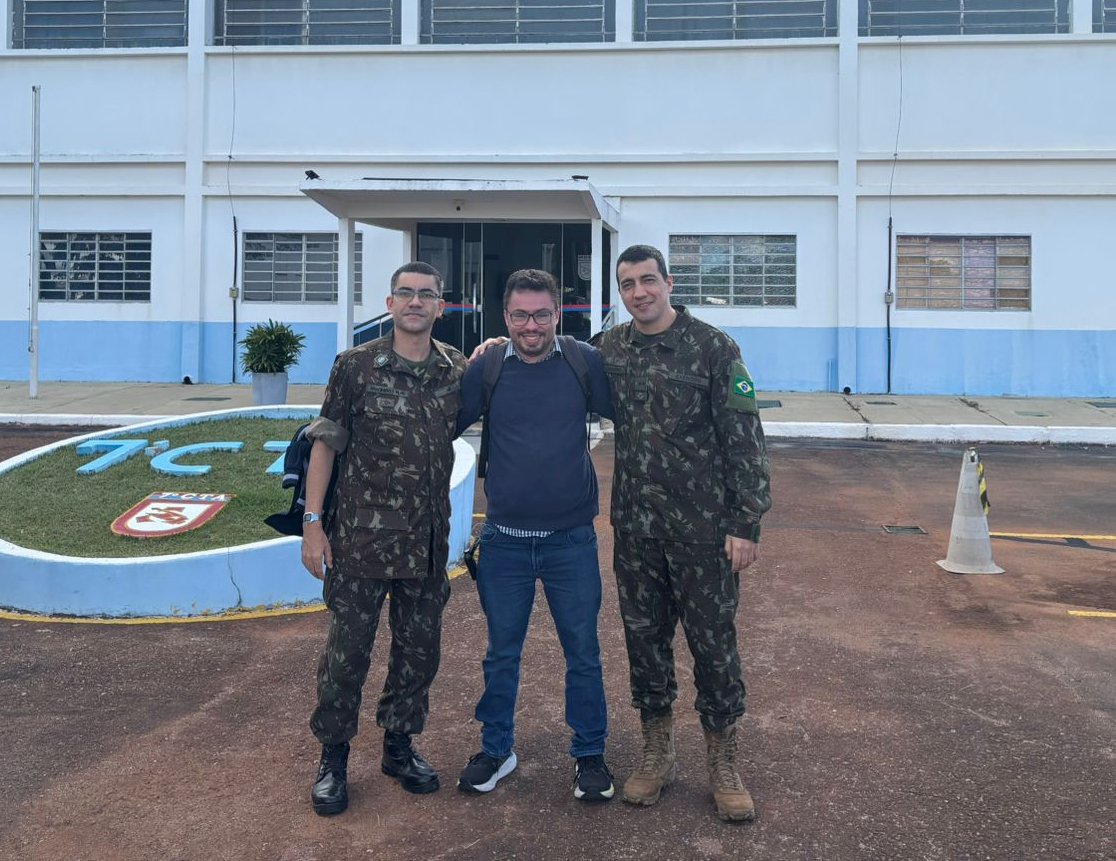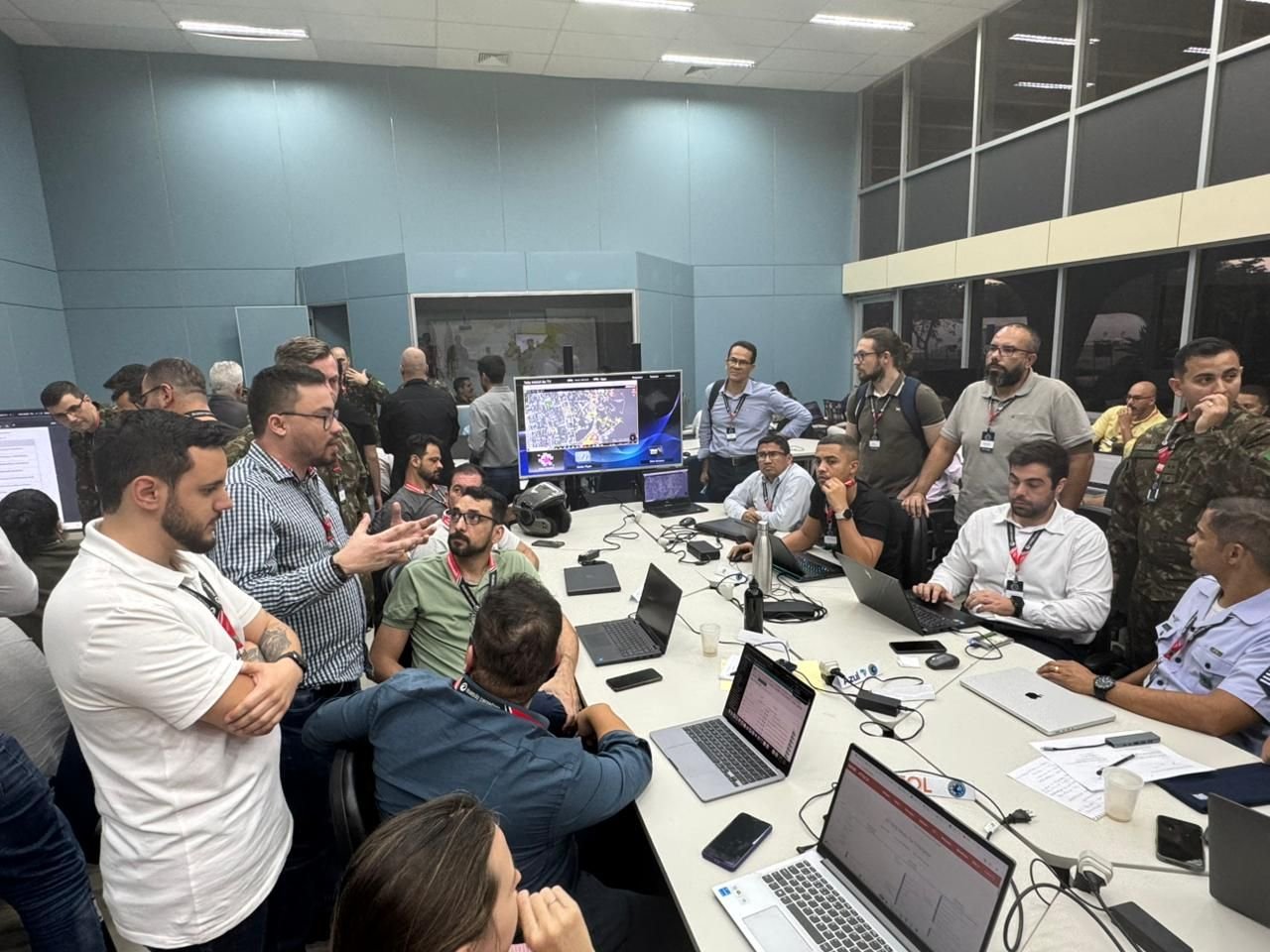Protecting the Power Grid

On April 28, 2025, a major power outage affected millions across Spain, Portugal and parts of southern France due to what authorities described as a “severe disruption.” Although the exact cause was not immediately confirmed, concerns quickly arose about the possibility of a cyberattack. Such trepidation highlights how in today’s interconnected world, something as simple as a phishing email can trigger a chain reaction that jeopardizes the safety and well-being of millions.
Recognizing the exponentially growing importance of cybersecurity, the College of Arts and Sciences’ (A&S’) Forensic and National Security Sciences Institute (Forensics Institute) offers a specialized master’s program in digital forensics in partnership with the Syracuse University School of Information Studies (iSchool). This program is designed to equip future professionals with the critical skills needed to safeguard sensitive information and infrastructure while holding malicious actors accountable. The M.S. blends courses in digital forensics, cybersecurity and data analytics with advanced forensic science and crime scene investigation.
What are cybersecurity and digital forensics? While closely interconnected, these disciplines represent proactive and reactive approaches to managing digital threats. Whereas cybersecurity focuses on preventing attacks and protecting digital infrastructure, digital forensics is concerned with investigating breaches in established cybersecurity and identifying the cause, scope and perpetrators of the attack.
With digital evidence now central to over 90% of criminal cases, as reported in the Digital Forensic Science Strategy, the program equips students for careers in cybersecurity, digital investigations and intelligence analysis. They also gain hands-on experience through fieldwork at top-tier facilities, including federal agencies like the Federal Bureau of Investigation, the Department of Justice and the Department of Defense, along with various crime laboratories and prosecutor’s offices.
Learning from Leaders in Cybersecurity
A key strength of the program is the access students have to faculty who are actively engaged in cutting-edge, practical research. A prime example is Filipe Augusto Da Luz Lemos, courtesy research professor and adjunct professor of forensics who also received a master’s degree in forensic science from A&S and a Ph.D. in cybersecurity from the Federal University of Technology Paraná in Brazil. When not teaching courses at Syracuse, he is conducting international research with organizations like the Brazilian Army at the Military Institute of Engineering.

“We focus on developing advanced simulated environments that can replicate everything from energy substations to entire distribution systems,” says Lemos about his current work. “These environments allow us to simulate cyberattacks and study system and device behavior, including the integration of physical equipment.”
Over the past decade, Lemos says the significant rise in attacks on critical infrastructure, such as the Ukraine power grid attacks in 2015 and the Colonial Pipeline attack in 2021, which significantly affected fuel supply to the U.S. East Coast, emphasize the growing need for highly trained professionals to work in both prevention and incident response.
Ensuring Grid Resilience
Lemos’ work in Brazil involves safeguarding that country’s power supply by exploring how systems react before, during and after an incident—without the risks or costs associated with testing real infrastructure.

“These simulations help uncover vulnerabilities, assess system resilience and evaluate the effectiveness of various detection and defense mechanisms. They also support the development of robust incident response plans and recovery protocols,” Lemos says.
From Brazilian Military Exercises to Syracuse Classrooms
Lemos' international expertise in cybersecurity and digital forensics has made him a sought-after instructor at major cyber defense conferences. He recently served as an instructor at Exercício Guardião Cibernético 7 (Cyber Guardian Exercise 7), led by the Brazilian Army's Cyber Defense Command. The exercise strengthens Brazil's resilience in critical-infrastructure protection by bringing together the nation's largest companies across energy, transportation, water, defense, financial services and other vital sectors.
While international partners from the United States and Europe attended as observers, Lemos worked directly with trainees to execute simulated adversary operations against major infrastructure organizations. The exercise creates realistic, mission-relevant scenarios that demand combined expertise in incident response and digital forensics—the same capabilities central to Syracuse's M.S. in digital forensics.

In turn, he brings this expertise and a deeper, more practical understanding of how to protect critical systems into the classroom at Syracuse, enriching the learning experience for students.
In his course, Computational Forensics, students are introduced to cutting-edge technologies such as machine learning and artificial intelligence. These tools are vital in the field of cybersecurity to sift through vast amounts of network traffic data to detect unusual patterns. By tackling practical forensic problems, students develop both the technical expertise and an analytical mindset essential for careers in cybersecurity and digital investigations.
Lemos sees sharing the professional knowledge he’s gained as a meaningful way to give back, recognizing the pivotal role his A&S education played in shaping his career.
“My education at Syracuse University was foundational to the work I do today,” he says. “The combination of strong theoretical grounding and hands-on experience—guided by professors who are both researchers and practitioners—gave me the tools to engage with real-world cybersecurity challenges. I’m grateful for the opportunity to support students as they prepare for impactful careers in high-stakes fields like military operations and critical infrastructure systems.”
By combining rigorous academic instruction with applied learning and direct engagement with faculty leading global initiatives, the Forensics Institute equips students to confront today’s complex digital threats. This integrated approach aligns with the University’s and A&S’s priorities of preparing students for careers in emerging and innovative technologies.
Published: Oct. 9, 2025
Media Contact: asnews@syr.edu
